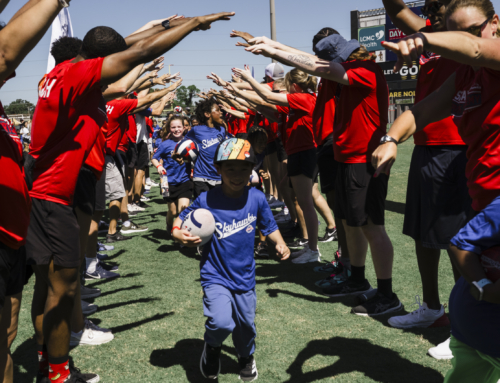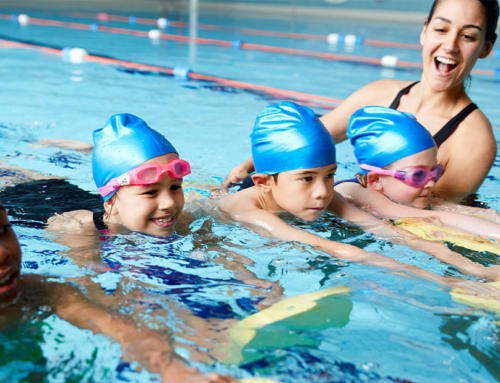Sometimes parents go too far in youth athletics. You’ve heard the stories. A parent runs out on the field and tackles a young player. A parent threatens a coach who doesn’t give their child enough playing time. A parent screams obscenities at the referee.
Though some competitive parents are great, many cross the line and upset or at times endanger athletes, other parents, and coaches. Competitive parents can be a challenge, whether continued pressure on a coach or player throughout the season or a single incident during a game. So as a coach, it’s helpful to have different ways to cope with them.
It’s Just a Game
Many parents forget that it’s just a game. That young athletes are out playing sports to have fun. Yes, most want to win too, but it is a game and what is most important is that young athletes grow as human beings. Participation in sports builds character and teaches young athletes life lessons, such as good sportsmanship and teamwork.
When I was coaching, I reminded my players that you learn more with a loss as hard as it is to lose. Not only do athletes learn what they need to do to get better and help their team get better, but they also know what it’s like to get back up and try again after they’ve been knocked down.
Athletes Learn About Life
Unfortunately, many parents get ultra completive about their child’s sports and forget about its true essence. Often this is because the parent thinks that sports will be their child’s ticket to college, even though only 1% of high school athletes get full-ride college scholarships. Other parents live vicariously through their children. Maybe they had a bad experience when they were young and want their child to have an awesome time playing sports. Hence, they get ultra-competitive, or perhaps they had a great time in youth sports and expected their child to be as good or better than they were and love it as much as they did.
The bottom line is youth sports should be fun. So what are some things that coaches can do to deal with overzealous parents and keep young athletes playing and having fun?
Pre-Season Parent Meeting
It’s essential to have a meeting with your athlete’s parents before the season starts so that you can set expectations for the season. I did this with my youth and high school teams. A pre-season meeting allows the coach to talk with parents about the plans for the season. It also allows the coach to explain what is expected from the athletes and parents. This can include sideline behavior.
If You Don’t Have Anything Nice To Say, Don’t Say Anything At All
Set guidelines, such as no coaching your child during the game so that athletes can focus on their teammates, their coach, and the game. Remind the parents to cheer for all of the athletes positively.
Let parents know how to communicate with you if needed. Explain that if they have concerns, they can schedule a meeting with you, but not right before or after a game. No coach wants to hash something out during that time. Set a precedent that you will not discuss other players or talk about playing time but will meet to discuss issues for the benefit of their child.
Parent & Coach Meeting
When you have a one-on-one meeting, it is best to have the athlete present if possible. This way, everyone is on the same page. At the high school level, there may be times when it is good to have another coach or the athletic director also attend the meeting.
Deescalate the Situation
Most parents complain in the crowds and don’t bring it onto the field. But as a coach, you may end up having to deescalate a situation with an overly competitive parent on the court or playing field. Usually, a referee will take this role but, for the safety of your players, there may come a time when you have to step in.
If you do, first take a deep breath and stay calm. Try to see things from the parent’s point of view, but always keep your team’s best interest in mind. This means de-escalating the situation. Suppose a parent is yelling things that are inappropriate or hurtful to the young athletes. In that case, you might quietly remind them to be positive with the athletes as they cheer.
This reminder may work, but if things get ugly, it’s time to get help.
Involve Authorities
As a coach, you may have to ask for help. If a parent gets out of hand, you may need to bring in a supervisor, or if they put players in danger in any way, you need to call the authorities.
Ignore the Parent
Most of the time, parents in youth sports are great. And do your best to communicate with them early in the season. You can reduce issues that may arise with overly competitive ones. And for the parents who are a little overzealous but not hurtful to your players, your best option is to ignore them.
Learn to shut out the chatter and while you’re at it, teach your young athletes to do the same. It’s not easy when it’s their parent, but being able to shut out the crowd noise and focus on your play is a valuable lesson for young athletes.
In the end, most parents want what is best for their children. As their coach, you do too. So do your best to be proactive about what you expect from parents early on, and then work together to have a successful season.
Article originally posted on stack.com




